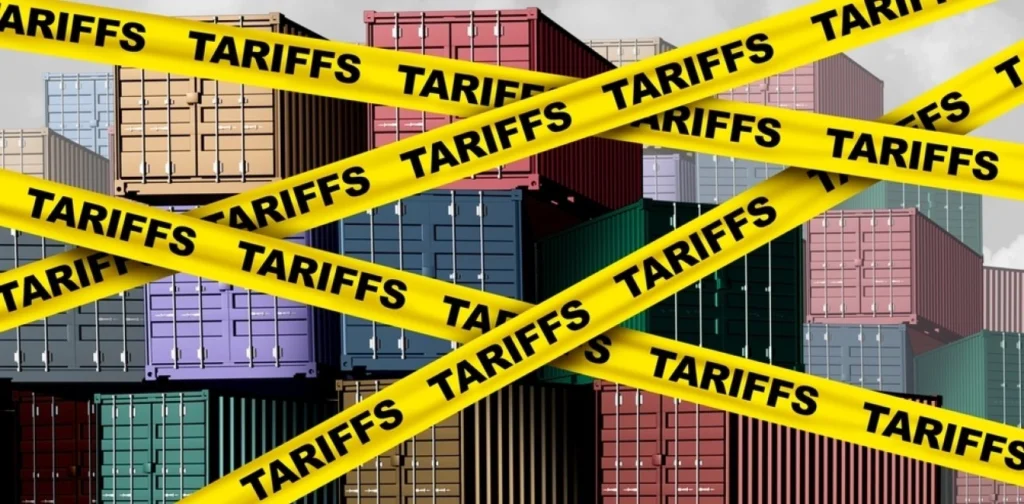
https://www.shutterstock.com/image-illustration/economic-tariffs-government-taxation-punative-tariff-2558358515
Association highlights opportunities to strengthen U.S.–Caribbean economic and tourism ties
Pointing to the considerable mutual benefits that tourism brings to the Caribbean and the United States—particularly Florida—the Caribbean Hotel and Tourism Association (CHTA), the region’s leading association representing private-sector tourism interests, is recommending alternatives to the proposed U.S. port service fees and tariffs. The organisation is advocating for modifications to the port-related policies currently under consideration and is calling for a new approach to strengthen and safeguard the two-way ties in trade and travel between the region and the U.S.
CHTA cited its recent submission to the U.S. Trade Representative (USTR) and other U.S. officials in response to a call for comments regarding proposed service fees of up to $1.5 million for each port call by a Chinese-made or flagged vessel. The organisation argues that these fees, coupled with tariffs, will significantly increase the cost of imports—raising costs for both land and cruise travellers—and ultimately reduce traveller demand and spending.
While acknowledging the U.S. government’s intention to expand the use of U.S.-built cargo ves-sels, CHTA warned of the policy’s unintended consequences, particularly its timing. The associa-tion presented compelling data highlighting the value of both land- and cruise-based travel to the U.S. and the Caribbean, as well as the challenges that U.S. and Caribbean-owned shipping com-panies would face in quickly transitioning away from Chinese-built vessels.
CHTA President Sanovnik Destang emphasized the socio-economic benefits that tourism brings to both regions, including job creation, business opportunities, and increased tax revenue.
“The region was beginning to see light at the end of the tunnel with many tourism-related busi-nesses recovering from the tremendous impact the pandemic had on travel and tourism,” said De-stang. “Even as our industry has rebounded, we remain highly vulnerable to the high cost of oper-ations—particularly food and beverages—driven largely by five years of inflation. One-third of our tourism-related businesses reported a net loss in 2024, according to CHTA’s annual performance study,” he added.
In its submission to the USTR, CHTA aligned with the CARICOM Private Sector Organization (CPSO) and shipping interests serving the Caribbean, calling for exemptions from the proposed fees for the region and for the protection of smaller shipping companies that serve the Caribbe-an—often via multiple small transhipment ports.
Caribbean states within the proposed exemption would include: Anguilla, Antigua and Barbuda, Aruba, The Bahamas, Barbados, Belize, Bermuda, Bonaire, the British Virgin Islands, Guyana, Cayman Islands, Curaçao, Dominica, Dominican Republic, Grenada, Guadeloupe, Haiti, Jamaica, Sint Maarten, St. Barthélemy, St. Kitts & Nevis, St. Lucia, St. Martin, St. Vincent & the Grenadines, Suriname, Trinidad & Tobago, and Turks & Caicos. Puerto Rico and the U.S. Virgin Islands would be included as U.S. territories.
Tourism contributed an estimated $91.2 billion to the region’s economies in 2024 and generated over 2.9 million jobs, according to the World Travel and Tourism Council. That year, the region welcomed more than 68 million visitors—half via cruise ships and half through stays in hotels and other accommodations—according to the Caribbean Tourism Organization (CTO).
The U.S. is the largest supplier of food products to the Caribbean, with food and beverages repre-senting the highest input costs. An estimated 70–80 percent of these goods are delivered via mar-itime shipping from the U.S., according to the CPSO.
Florida, in particular, would feel the impact. Most cruise visitors to the Caribbean originate from the state, and cruise ships are provisioned through Florida-based suppliers and shippers—contributing significantly to U.S. businesses, employment, and local, state, and federal tax reve-nues.
The CPSO notes that each stayover visitor (i.e., staying in a hotel or guest accommodation) to the Caribbean contributes an estimated $944—directly and indirectly—toward incremental U.S. im-ports, approximating $6.2 billion in U.S. exports to CARICOM countries in 2023. Each cruise visi-tor is estimated to contribute $23—directly and indirectly—toward incremental U.S. imports, total-ling approximately $0.3 billion in U.S. exports to CARICOM countries in 2023.
“Given the clear mutual advantages to both the U.S. and the Caribbean of a vibrant Caribbean hospitality and tourism industry, and in the spirit of mutual collaboration, longstanding benefits from trade and tourism, and our shared commitment to free enterprise and democracy, we are hopeful that our recommendations are considered and adopted for our mutual benefit,” said De-stang.





![Attendees at the UHC logo and website launch [Photo credit: GOSL]](https://thevoiceslu.com/wp-content/uploads/2026/02/Attendees-at-the-UHC-logo-and-website-launch-380x250.jpg)






![Remnants of an alleged drug boat blown up in a lethal strike by the U.S. military last week surfaced off Canouan on Saturday [Photo credit : St Vincent Times]](https://thevoiceslu.com/wp-content/uploads/2026/02/Remnants-of-an-alleged-drug-boat-blown-up-380x250.jpg)
